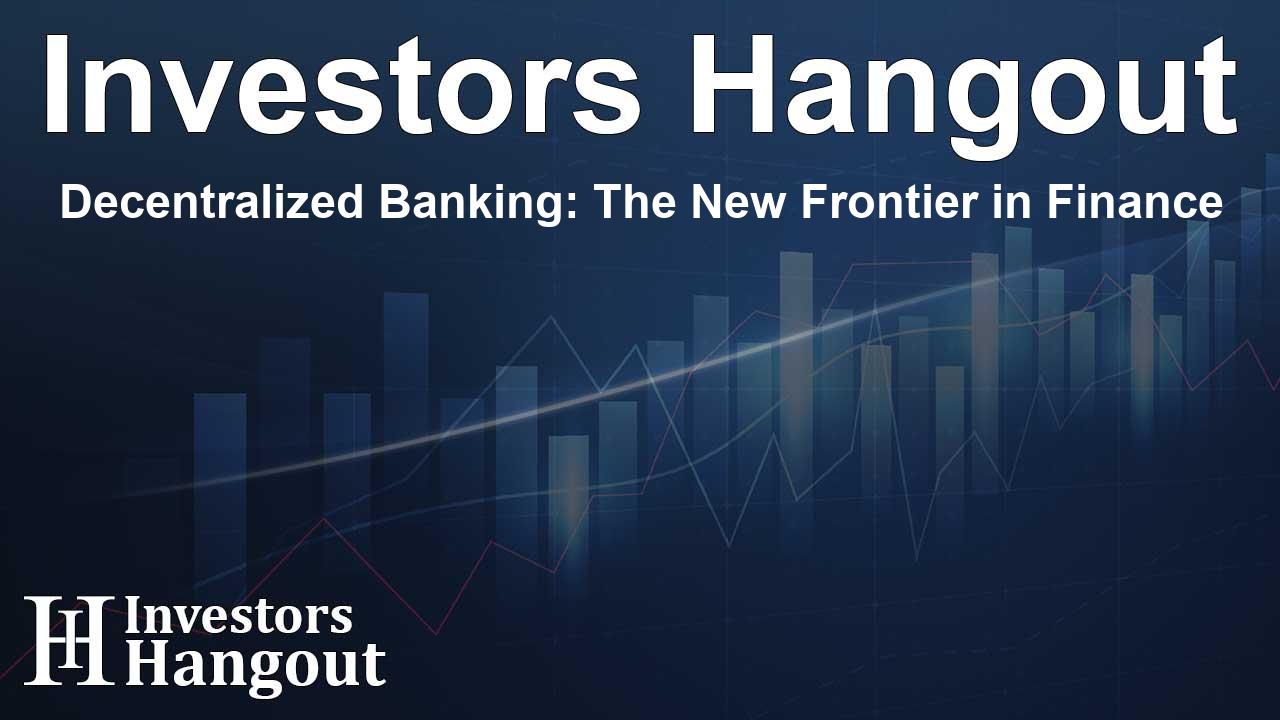Emerging Role of Deobanks in Finance
A new category of financial institution is beginning to take shape as decentralized banking models, known as "deobanks," find their niche between traditional banks and fintech firms.
Redefining Financial Competition
This shift in the financial landscape is expected to redefine competition globally in the coming years, according to industry leaders.
Deobanks Explained by WeFi CEO
"While banks bring trust through robust regulation, fintech companies offer digital convenience, deobanks provide users with control without sacrificing accessibility," stated Maksym Sakharov, co-founder and Group CEO of WeFi. As the first deobank of its kind, WeFi is at the forefront of this innovative model.
Challenging Established Values
According to Sakharov, the emergence of deobanks forces current financial players to reassess their value propositions entirely. This new approach places emphasis on the user's ownership of assets while still allowing them to access services akin to traditional institutions.
The Global Landscape and Emerging Markets
This model has particular relevance in emerging markets, where infrastructure challenges and high transaction fees make alternatives more appealing.
Hurdles in Deobank Adoption
However, significant hurdles remain in the adoption of deobanks. Many potential users still view decentralized finance with skepticism due to perceived complexity, despite advancements in user interfaces and onboarding processes. Furthermore, trust issues abound, shaped in part by notable failures in the crypto sector that have impacted public perception.
Integrating Familiar Payment Methods
To overcome these challenges, companies like WeFi are focusing on familiar features—like card payments and mobile-first onboarding—to encourage adoption and trust among potential users.
Regulatory Momentum and Future Prospects
Regulatory clarity is beginning to foster momentum in this new sector. Recent legislation is establishing clear compliance pathways that can foster growth in the decentralized banking space.
The Role of CBDCs
Sakharov anticipates that central bank digital currencies (CBDCs) will popularize digital money while simultaneously increasing the demand for alternatives that prioritize financial independence. He noted that CBDCs maintain the same restrictions as traditional currencies, raising concerns about privacy and control.
Addressing Security Concerns
Security remains a crucial barrier to widespread adoption. The decentralized finance sector continues to face challenges from hacks and failures in smart contracts. Sakharov highlighted the necessity for layered security measures, including insurance protections and rigorous audits, to build user confidence.
Visions for a Transformative Future
Despite current obstacles, supporters of the deobanking movement envision a transformative future on the horizon. Innovations like real-world asset tokenization and programmable finance aim to propel decentralized financial services to new heights.
Universal Financial Access
For the approximately 1.4 billion adults globally who are unbanked, mobile-focused deobanks could expedite access to financial services more efficiently than traditional banking infrastructures. Specifically, remittances are seen as a primary entry point, offering speed and affordability, particularly in countries where adoption of stablecoins has grown significantly.
A Shift in the Financial Pillar
The rise of deobanks signifies more than just another trend in fintech; it represents the establishment of a vital framework alongside traditional banking and fintech industries. As regulations tighten, security measures advance, and users demand greater autonomy, the financial sector may be on the brink of a transformative shift.
Frequently Asked Questions
What are deobanks?
Deobanks are decentralized banking institutions that provide users with sovereignty over their assets while delivering accessibility similar to traditional financial services.
What challenges do deobanks face?
Deobanks face significant challenges such as security concerns, user trust issues, and the perception of decentralized finance as complex.
How could deobanks benefit unbanked populations?
Deobanks could facilitate faster and more efficient access to financial services for unbanked individuals, particularly through mobile solutions.
What role do CBDCs play in this evolution?
CBDCs are expected to normalize digital currencies while increasing the demand for alternatives that offer users more control and autonomy.
How can security be improved in decentralized finance?
Improving security could involve implementing multi-layered approaches, including rigorous audits, insurance, and enhanced transparency in transactions.
About The Author
Contact Lucas Young privately here. Or send an email with ATTN: Lucas Young as the subject to contact@investorshangout.com.
About Investors Hangout
Investors Hangout is a leading online stock forum for financial discussion and learning, offering a wide range of free tools and resources. It draws in traders of all levels, who exchange market knowledge, investigate trading tactics, and keep an eye on industry developments in real time. Featuring financial articles, stock message boards, quotes, charts, company profiles, and live news updates. Through cooperative learning and a wealth of informational resources, it helps users from novices creating their first portfolios to experts honing their techniques. Join Investors Hangout today: https://investorshangout.com/
The content of this article is based on factual, publicly available information and does not represent legal, financial, or investment advice. Investors Hangout does not offer financial advice, and the author is not a licensed financial advisor. Consult a qualified advisor before making any financial or investment decisions based on this article. This article should not be considered advice to purchase, sell, or hold any securities or other investments. If any of the material provided here is inaccurate, please contact us for corrections.

